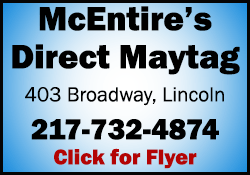|
 For
Reuters' "Life Lessons" series, the iconic 70-year-old country
singer, songwriter, actress and businesswoman talked about her
unique journey as one of the most honored artists in American
history. For
Reuters' "Life Lessons" series, the iconic 70-year-old country
singer, songwriter, actress and businesswoman talked about her
unique journey as one of the most honored artists in American
history.
Q: Your family didn't have much growing up. How did that shape
your understanding of money?
A: I think being poor has been good for me. I saw how my mom and
dad struggled, and how they could stretch a dollar farther than
you could begin to imagine. Even now, if I am thinking about
spending a lot of money on clothing or furniture, I think 'I
can't spend so much money on one thing; my poor old Daddy could
have raised his family five years on that!'
So I know the struggles of poor people, and have always kept
that with me. I often say I had to get rich in order to sing as
if I was poor.
Q: What was your first job as a kid?
A: We all had our chores on the farm, but my first money-making
job was actually singing, at 10 years old. It was on the Cas
Walker show down in Knoxville, Tennessee, and I used to ride the
bus to the radio station.
I was on television before we even had one at home. In fact, I
bought our first family television with my own money, putting it
on credit and then paying it off every week.
Nobody in our area had a TV, so everyone used to come over and
watch shows like Woody Woodpecker and Daniel Boone, and then
never leave. Finally my Daddy said, 'That television has got to
go!'

Q: Once you had some success, how did you deal with that
wealth?
A: It seems like the more I give the more I get, and that is the
way it is supposed to go in life. Money is like the tide: It
rolls in and it rolls out. If you clutch it, you are not going
to keep it. With the first money I ever made I bought my Mommy
and Daddy a car, and helped them fix their house up.
Q: When you got the business idea of starting your Dollywood
theme park and resort, did people not take you seriously at
first?
[to top of second column] |

A: A lot of my businesspeople said: 'That's a big mistake, that is a
great way to lose all your money.' But I had a feeling in my stomach
that it was the right thing to do, so I went ahead with it. Then I
got rid of those lawyers and accountants who didn't believe in me,
and got new ones who did. Needless to say, it's been the biggest and
best investment I ever made.
Q: Any advice for entrepreneurs starting out?
A: Any business you go into, you have to think about how much money
you are willing to put into it, and how much you are not. Unless you
have spent your life doing something, you are not likely to be
successful, so always partner with people who are smarter than you.
I do have a natural sense for business, which I think I get from
my Dad. I know when something ain't right, and I know exactly what I
will or won't tolerate. I can spot a con artist from a mile away.
Q: How do you direct your charitable dollars?
A: One of the things I'm proudest of is the Imagination Library,
which gives books to kids from the time they are born to when they
start school. So many of my relatives didn't get a chance to go to
school, and my own Daddy couldn't read or write. It started in my
hometown, and now we are all over the world. It gives me real pride
because it reminds me of Daddy.
Q: You once gave a commencement speech about life lessons. What did
you tell the graduates?
A: I asked them, are you willing to work hard? Because you have to
work hard, in order to get anything done. Know that up front. Dreams
are of no value if they don't have wings and feet. You can't just
wish to be a millionaire; you have to figure out how to earn it.
(Editing by Beth Pinsker and Bernadette Baum)
[© 2016 Thomson Reuters. All rights
reserved.] Copyright 2016 Reuters. All rights reserved. This material may not be published,
broadcast, rewritten or redistributed. |